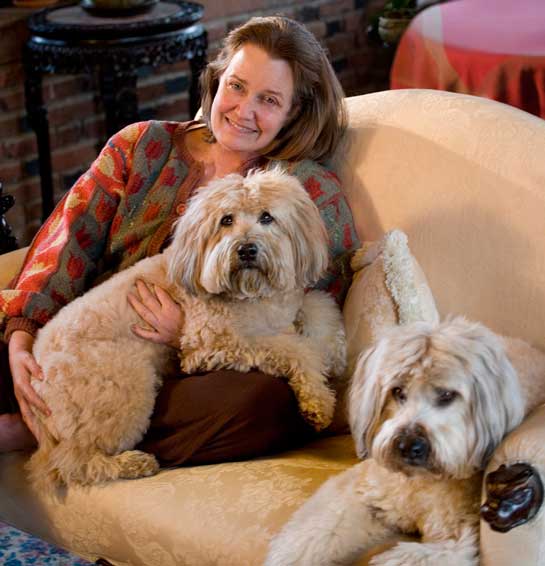IN MEMORIAM
Jo Ann Fitzpatrick Brown of Blantyre:
1949–2016

The indignity of cancer and death has struck the hospitality world. Ann Fitzpatrick Brown, proprietor of Blantyre, died late last January at the youthful age of sixty-six. Blantyre is a forty-six-acre pastoral country manor in picturesque Lenox, Massachusetts. Few could rival Ann Brown in courtesy, charm, and civility, all of which she effortlessly integrated in managing Blantyre. She was a consummate host: Blantyre guests were made to feel like good friends visiting other good friends, not people who were paying patrons.
Larger hotels dominate the travel world, and their pre-packaged courtesy chatter is just that—canned courtesy chatter. Hosting and genuine warmth is a lost art these days, sometimes found chiefly in smaller inns and manors, like Relais & Chateaux properties, of which Blantyre is one. Nothing was amiss at Blantyre. Brown oversaw everything—invitations, wine dinners, guest lists, seating, even the calligraphy and quality of an envelope or a dining card. Her wine-dinners had three-star Michelin excellence, were never a mere spectacle for the sake of show. Service was warm and precise; dining was dramatic and splendid. Wine makers of renown (Chateau Margaux, Chateau Haut Brion…) were eager to bring their wines to Blantyre’s wine-dinners. Blantyre’s wine cellar was staggering in its size and vintaged quality—First and Second Growth Bordeaux, Premier Cru Burgundies, vintage Champagnes, California trophy wines, aged Ports, Madeiras, Sherries—a library wine collection that was more than a superb collection, it was a magnitude.
Blantyre’s success was seen by the retention of its people. Time and again one saw the same wait staff, who served guests as sincerely as Brown. Dining, one of the chief glories at Blantyre, was overseen by Christelle Cotar, whose husband Executive Chef Arnaud Cotar made dining—largely French-American cuisine—an exalted experience. Former Executive Chef Christopher Brooks stayed on to be general manager. Noise—of epic decibel dimensions and one of the major modern distractions at restaurants today— was non-existent at Blantyre, except perhaps for the seductive keys of Karen Tchougourian’s piano emerging from the music room. Dining was easy, pleasurable, and the noiselessness allowed one to savor and respect Chef Cotar’s dishes. It was old world, traditional dining, amidst art and grand antiques. It was transport to an older and perhaps better world, a world of long walks over 117 wooded acres, of picnics, of afternoon tea and sherry, of lawn bowling, of peace.
With Ann Fitzpatrick Brown’s death, Blantyre has been put up for sale. Something surely has been lost. No one was more generous—the operative word in describing Ann Fitzpatrick Brown— to the community than she, who opened up Blantyre to the Norman Rockwell Museum, the Edith Wharton Restoration Project, the Lenox Library, and many other charitable organizations. On a personal note, no one was more generous to Salem State University, where one of the leading wine university auctions takes place annually, than Ann Fitzpatrick Brown. After the holidays, I asked if she would again extend to our auction another of her extraordinary weekend packages of wining and dining. She never mentioned her illness, and in her grand and generous way said, “of course.” She leaves a son, Alexander, a sister, Nancy, a dog— her beloved Sophie, a Wheaten Terrier— and a host of irreplaceable memories of an English manor she made great.
